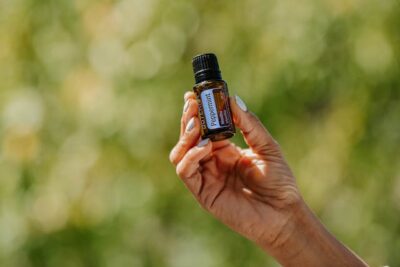Overview
- Introduction: Is Peppermint Oil Safe for Dogs
- Essential Oils: Understanding Peppermint Oil
- Peppermint Oil Safety Concerns
- Essential Oil: Choosing the Right Peppermint Oil
- Safe Usage of Peppermint Oil
- Potential Risks of Peppermint Oil
- Alternative Natural Remedies and Essential oils
- Conclusion: Is Peppermint Oil Safe For Dogs
- Frequently Asked Questions (FAQs): Is Peppermint Oil Safe for Dogs
Introduction: Is Peppermint Oil Safe for Dogs

In recent years, the use of essential oils, including peppermint oil, has gained significant popularity as a natural remedy for various health concerns in dogs.
However, before incorporating peppermint oil into your furry friend’s wellness routine, it’s crucial to understand the potential benefits, safety concerns, and proper usage.
This comprehensive guide will provide you with all the information you need to make informed decisions regarding the use of peppermint oil for your canine companion and to finally answer the age-old question, “Is peppermint oil safe for dogs?”
Additionally, we’ll explore how much peppermint oil is toxic to dogs, ensuring your pet’s safety and well-being.
A Brief Overview of Peppermint Oil for Dogs
As pet parents increasingly seek natural alternatives for their dogs’ well-being, essential oils like peppermint have come into the spotlight. Peppermint oil, derived from the peppermint plant, is known for its highly concentrated and potent properties.
However, it’s crucial to ask, “is peppermint oil safe for dogs?” before using it, as improper use can lead to adverse effects. Always consult with a veterinarian before using essential oils on or around your pets.
Additionally, it’s important to know how much peppermint oil is toxic to dogs to prevent any accidental overdoses.
Essential Oils: Understanding Peppermint Oil
What is Peppermint Oil?
Peppermint oil is derived from the leaves of the peppermint plant (Mentha x piperita) using a steam distillation process. This natural oil is renowned for its refreshing minty scent, and it finds its way into a variety of products, including dog toothpaste.
Its invigorating fragrance adds a touch of freshness to canine oral care products.
Composition
The potency of peppermint oil lies in its rich composition. It contains active compounds, the most notable being menthol and menthone. These compounds are responsible for the oil’s distinctive properties.
Menthol provides a cooling sensation, while menthone contributes to its aromatic allure. Together, they create a dynamic duo that brings soothing and invigorating effects to both humans and dogs.
Historical Use
Peppermint oil boasts a history steeped in traditional medicine, where it has been cherished for its potential health benefits. From ancient civilizations to modern times, this versatile oil has been employed to alleviate various ailments in humans.
More recently, its potential benefits have extended to our canine companions. Is peppermint oil safe for dogs? When used properly and in moderation, peppermint oil can offer benefits for dogs.
However, it’s important to use caution and consult with a veterinarian before using any essential oils on your dog, as they can be potent and may cause adverse reactions in some animals.

Peppermint Oil Safety Concerns
While peppermint oil offers potential benefits for dogs, such as repelling fleas and providing a refreshing scent, it’s crucial to ask, “is peppermint oil safe for dogs?”
Safety concerns include the potential for toxicity, especially if ingested in large amounts or applied undiluted to the skin.
Always consult with a veterinarian before using peppermint oil on or around your furry friend to ensure their well-being.
Toxicity Concerns
Undiluted or improperly administered peppermint oil can be toxic to dogs. Is peppermint oil safe for dogs? It’s essential to use it cautiously and follow recommended guidelines for dilution and usage.
How much peppermint oil is toxic to dogs? Always prioritize your dog’s safety by consulting with a veterinarian before using any essential oils on your dog, as they can be potent and may cause adverse reactions in some animals.
Dosage Considerations
Determining the appropriate dosage of peppermint oil for your dog is vital. Consult with a veterinarian to establish the correct amount based on your dog’s size, age, and specific health needs. Avoid overuse to prevent potential adverse effects.
Allergic Reactions
Some dogs may be sensitive or allergic to peppermint oil. Watch for signs of skin irritation, difficulty breathing, excessive drooling, or other allergic reactions. If any adverse reactions occur, discontinue use immediately.
Interactions with Medications
Peppermint oil may interact with certain medications your dog is taking. Always consult your vet before using it alongside other treatments to ensure there are no adverse interactions.

Essential Oil: Choosing the Right Peppermint Oil
To ensure the safety and well-being of your dog, consider the following factors when selecting peppermint oil:
Organic vs. Non-organic Essential Oils
Organic peppermint oil is free from synthetic pesticides, making it a safer choice for your pet. Non-organic options may contain trace amounts of chemicals that could pose risks.
Pure vs. Blended Peppermint Oil
Pure peppermint oil, extracted solely from peppermint leaves, is the best choice for dogs. It contains no additives or fillers that could be harmful. Avoid blended oils that may contain potentially problematic additives.
Sourcing Tips for High-Quality Essential Oil
When choosing peppermint oil, take the following steps to ensure its quality and safety:
- Safety Labels and Certifications: Look for peppermint oil products with safety labels and certifications indicating their suitability for use on pets.
- Brand Research: Research reputable brands known for producing high-quality, pet-safe essential oils.
- Ingredient Review: Carefully review the ingredient list to ensure there are no undisclosed additives or synthetic substances.
By following these safety considerations and making informed choices, you can enjoy the potential benefits of peppermint oil for your dog while safeguarding their health and well-being.

Safe Usage of Peppermint Oil
Ensuring the safe and responsible use of peppermint oil for your dog is paramount. Here are some essential guidelines to follow:
Dilution Ratios for Dogs
“Is peppermint oil safe for dogs?” is a common question among pet owners. When using peppermint oil on dogs, it’s crucial to dilute it properly.
The recommended dilution ratio for safe usage is typically 1 drop of peppermint oil to 50 drops of a carrier oil, such as coconut or olive oil.
This ensures that the oil is gentle on your dog’s skin and avoids any potential irritation. Always consult with your veterinarian before using any essential oils on your dog.
Topical Application
When considering the safe usage of peppermint oil for dogs, it’s essential to understand the proper application methods. Topical application of diluted peppermint oil can be safe for dogs, but it’s crucial to dilute it properly and avoid sensitive areas like the face and mucous membranes.
Always consult with a veterinarian before using peppermint oil on your dog, especially if they have any underlying health conditions.
In conclusion, the question “Is peppermint oil safe for dogs?” can be answered affirmatively with proper dilution and cautious application
Inhalation Methods
Is peppermint oil safe for dogs?” is a common question among pet owners. When using peppermint oil for inhalation around dogs, it’s important to be cautious. Avoid direct inhalation by the dog and instead, diffuse the oil in a well-ventilated area.
It’s also advisable to use a small amount of oil, as dogs have a sensitive sense of smell. Always monitor your dog’s behavior for any signs of discomfort and consult with your veterinarian before using essential oils around your pet.
Oral Consumption (if applicable)
If your veterinarian recommends oral use of peppermint oil for specific health concerns, it’s essential to follow their guidance closely. Understand the correct dosage and administration method.
Administer it with care, using a syringe or dropper to ensure accuracy.
Frequency of Use
While peppermint oil can offer therapeutic benefits, it’s essential to strike a balance in its usage. Using it too frequently may lead to adverse effects. Consult your vet to determine an appropriate and safe frequency for your dog’s specific needs.

Potential Risks of Peppermint Oil
Despite its potential benefits, peppermint oil carries some inherent risks for dogs. Being aware of these risks is crucial for responsible usage:
Adverse Reactions in Dogs
Always be vigilant for any adverse reactions in your dog when using peppermint oil. These reactions can include skin irritation, digestive issues, or difficulty breathing.
If you notice any of these symptoms, discontinue use immediately and consult your veterinarian.
Symptoms of Peppermint Oil Poisoning
Peppermint oil poisoning can occur if your dog ingests undiluted peppermint oil or consumes a significant amount. How much peppermint oil is toxic to dogs? The toxic dose of peppermint oil for dogs can vary depending on the size and breed of the dog, but as little as 0.1-0.2 milliliters per kilogram of body weight can be toxic.
Symptoms may include vomiting, diarrhea, drooling, tremors, and more severe complications. If you suspect your dog has ingested peppermint oil or shows signs of poisoning, seek immediate veterinary care.
Immediate Actions for Suspected Poisoning
In cases of suspected peppermint oil poisoning, your veterinarian may administer treatments such as intravenous (IV) fluids and closely monitor your dog’s condition. Quick action is essential to mitigate potential harm.
Importance of Veterinary Care
Above all, it cannot be stressed enough: always consult your veterinarian before using peppermint oil on your dog, especially if your dog has underlying health conditions or if you are uncertain about its suitability. Your vet can provide personalized advice and ensure your dog’s safety.
By following these guidelines and being cautious of potential risks, you can harness the therapeutic benefits of peppermint oil while prioritizing the well-being of your beloved canine companion.

Alternative Natural Remedies and Essential oils
If you have reservations about using peppermint oil for your dog, there are alternative natural remedies to consider, each with its unique benefits and safety profiles.
Other Essential Oils Safe for Dogs
Lavender Oil
Lavender oil is well-known for its calming properties and pleasant fragrance. It can help alleviate stress and anxiety in dogs. However, like all essential oils, it should be used in moderation and properly diluted to avoid any adverse reactions.
Tea Tree Oil
Tea tree oil, also known as melaleuca oil, is renowned for its antimicrobial and antifungal properties. It can be used for minor skin issues and wound care. However, it’s essential to use tea tree oil with great caution, as it can be toxic if ingested or used in high concentrations.
Herbal Options
Chamomile
Chamomile is a soothing herb that can be used to ease digestive discomfort and promote relaxation in dogs. It can be administered as a tea or added to their food, but always consult your vet for proper dosages.
Calendula
Calendula, or marigold, is another herbal remedy known for its anti-inflammatory and wound-healing properties. Calendula creams or infused oils can be applied topically to soothe skin irritations.
Lifestyle Changes for Your Dog’s Well-being
Sometimes, the most effective remedies involve making positive changes to your dog’s daily life.
Dietary Adjustments
Ensure your dog’s diet is well-balanced and tailored to their specific needs. Discuss dietary changes with your vet to address any health concerns or allergies.
Exercise and Play
Regular exercise and playtime are essential for your dog’s physical and mental well-being. Incorporate daily walks, interactive toys, and engaging activities to keep your furry friend happy and healthy.

Mental Stimulation
Mental stimulation is as crucial as physical exercise for dogs. Puzzle toys, training sessions, and interactive games can help keep your dog’s mind sharp and engaged.
Quality Sleep
Adequate rest is vital for your dog’s overall wellness. Provide a comfortable and quiet sleeping area to ensure they get the rest they need.
Incorporating these alternative remedies and lifestyle changes can contribute to your dog’s health and happiness. Remember that when introducing any new remedy or making significant changes to your dog’s routine, it’s essential to consult your veterinarian for personalized guidance.
By exploring these natural alternatives and implementing lifestyle adjustments, you can provide holistic care for your beloved canine companion while ensuring their safety and well-being.

Conclusion: Is Peppermint Oil Safe For Dogs
To answer the question “Is peppermint oil safe for dogs?”, peppermint oil can indeed become a valuable asset in your dog’s wellness routine when approached with responsibility and care.
As you’ve learned about its potential benefits, safety concerns, and proper usage throughout this guide, it’s essential to delve a bit deeper into the world of essential oils, especially when it comes to your furry friend’s well-being.
Understanding Essential Oil Safety
Essential oils are potent and concentrated substances, which is why it’s crucial to approach them with the utmost caution. Essential oil poisoning is a real concern for pets, including dogs, and it’s vital to keep them safe.
Is peppermint oil safe for dogs? Peppermint essential oil, when used properly and safely, can indeed offer benefits, but it’s just one of many other essential oils available. There are many essential oils with unique properties that can address the different needs of your dog.
How much peppermint oil is toxic to dogs? It’s important to note that the toxicity of peppermint oil can vary depending on the size and health of your dog. Generally, it’s recommended to avoid using peppermint oil directly on your dog and to consult with a veterinarian before using any essential oils.
The Importance of Dilution
Common queries pet owners have are, “How much peppermint oil should I use?” and “How much peppermint oil is toxic to dogs?” The answer lies in proper dilution. The exact amount of peppermint oil that can be toxic to dogs can vary depending on the size, age, and health of the dog, as well as the concentration of the oil.
However, as a general guideline, it’s considered unsafe to use undiluted peppermint oil on dogs. Even small amounts of undiluted oil can cause skin reactions, discomfort, and more severe symptoms. It’s always best to consult with a veterinarian before using any essential oils on your dog.
Final Thoughts Peppermint Oil
As you reflect on the information provided in this guide, it’s essential to remember that the use of diffused peppermint oil can create a natural and pleasant atmosphere at home. It can help keep your dog hydrated, especially during hot weather, and contribute to their overall well-being.
Is peppermint oil safe for dogs? However, it’s equally crucial to remain vigilant about potential health concerns. Liver disease and liver failure can have severe consequences for your pet. If you notice any unusual symptoms or suspect that your dog has ingested undiluted peppermint oil, it’s imperative to contact your vet immediately. Some symptoms can be life-threatening, and swift action is essential.
Responsible Pet Ownership
In the world of essential oils, including peppermint oil, responsible pet ownership means understanding the fine balance between potential benefits and safety. While your dog’s keen sense of smell may be intrigued by the minty smell, it’s our duty as pet parents to ensure their safety.
Is peppermint oil safe for dogs? In times of uncertainty or when facing severe symptoms, always consult with your veterinarian. Your vet is your trusted partner in your dog’s health journey and can provide the best guidance tailored to your furry friend’s specific needs.
Frequently Asked Questions (FAQs): Is Peppermint Oil Safe for Dogs
- Can I use peppermint oil to repel fleas on my dog?
- Peppermint oil can be used as a natural flea repellent when diluted and used properly.
- How much peppermint oil is toxic to dogs?
- The exact amount of peppermint oil that can be toxic to dogs can vary depending on factors such as the dog’s size, age, and health, as well as the concentration of the oil. However, as a general guideline, it’s considered unsafe to use undiluted peppermint oil on dogs. Even small amounts of undiluted oil can cause skin irritation, gastrointestinal upset, and other more severe symptoms. It’s always best to consult with a veterinarian before using any essential oils on your dog.
- Is peppermint oil safe for puppies?
- Peppermint oil should be used with caution on puppies. Consult your vet for guidance.
- Can I diffuse peppermint oil around my dog?
- Diffusing peppermint oil can be safe if done in moderation and in a well-ventilated area.
- Are there any health benefits of peppermint oil for dogs?
- Peppermint oil may offer benefits such as soothing sore muscles and promoting relaxation.
- How do I choose the right carrier oil for diluting peppermint oil?
- Olive oil and coconut oil are safe carrier oils to dilute peppermint oil for dogs.
- Is peppermint essential oil safe for dogs with sensitive skin?
- Peppermint essential oil can be harsh on sensitive skin. Always dilute it and perform a patch test on a small area of your dog’s skin.
- Can my dog ingest peppermint oil for digestive issues?
- Ingesting peppermint oil can be beneficial for some dogs with digestive problems, but it should only be done under the guidance of a veterinarian.
- Are there any potential side effects of using peppermint oil on dogs?
- Potential side effects may include skin irritation, gastrointestinal upset, or respiratory issues. Always monitor your dog for any adverse reactions.
- Can I use peppermint oil to freshen my dog’s breath?
- Peppermint oil can be added to homemade dog toothpaste to help freshen your dog’s breath, but consult your vet for safe usage instructions.
- What should I do if my dog ingests undiluted peppermint oil accidentally?
- If your dog ingests undiluted peppermint oil, contact your veterinarian immediately, as it can be toxic in concentrated form.
- Are there specific breeds that should avoid peppermint oil?
- While peppermint oil is generally safe, some breeds may be more sensitive. Consult your vet if you have concerns about your dog’s breed.
- Can peppermint oil be used in dog shampoo for a refreshing bath?
- Peppermint oil can be added to dog shampoo for a refreshing bath, but ensure it’s well-diluted to prevent skin irritation.
- How can I introduce my dog to the scent of peppermint oil?
- Allow your dog to sniff a diluted drop of peppermint oil on a cloth before use to familiarize them with the scent.
- Is it safe to use peppermint oil in homemade dog treats?
- Peppermint oil can add flavor to homemade dog treats, but use it sparingly and consult your vet for proper dosage.
- Can I use peppermint oil to repel ticks on my dog?
- Peppermint oil may help repel ticks, but always consult with your vet and consider other tick prevention methods.




